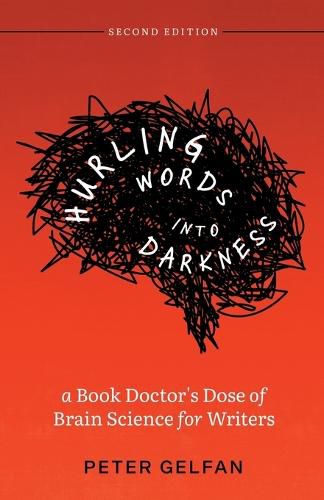Readings Newsletter
Become a Readings Member to make your shopping experience even easier.
Sign in or sign up for free!
You’re not far away from qualifying for FREE standard shipping within Australia
You’ve qualified for FREE standard shipping within Australia
The cart is loading…






This title is printed to order. This book may have been self-published. If so, we cannot guarantee the quality of the content. In the main most books will have gone through the editing process however some may not. We therefore suggest that you be aware of this before ordering this book. If in doubt check either the author or publisher’s details as we are unable to accept any returns unless they are faulty. Please contact us if you have any questions.
Can learning how our minds work make you a better writer?
For thousands of years, writers in all media have been taught theories and rules about writing based on tradition, philosophy, esthetics, poetics, scholarship, mysticism, whim, pet peeves, and arbitrary dictates. Often they’ve been told how and what to write according to subjective preference rather than universal appeal, leaving them lost in a sea of conflicting advice.
Meanwhile, over the past few decades, cognitive science has discovered much about how the human mind sees the world and extracts meaning from it, giving us a better understanding of the role stories and storytelling play in human survival, growth, and evolution. Yet these discoveries have often remained cloistered in the realm of science, out of sight to writers and artists.
In Hurling Words into Darkness, veteran editor, novelist, screenwriter, and teacher Peter Gelfan uses these discoveries to connect previously undiscovered dots between authors’ misconceptions and readers’ expectations. This short but powerful book provides unique and actionable insights for all writers, whether beginners or pros, who are interested in creating a more engaging and effective reading experience. You’ll learn to:
Create memorable characters by treating them as real people Turn an intriguing premise into a page-turning plot Use subtext to add depth and complexity Choose the best POV and person for your story Balance dialogue and narrative effectively
Discover which of your writing habits work against you And much more!
$9.00 standard shipping within Australia
FREE standard shipping within Australia for orders over $100.00
Express & International shipping calculated at checkout
This title is printed to order. This book may have been self-published. If so, we cannot guarantee the quality of the content. In the main most books will have gone through the editing process however some may not. We therefore suggest that you be aware of this before ordering this book. If in doubt check either the author or publisher’s details as we are unable to accept any returns unless they are faulty. Please contact us if you have any questions.
Can learning how our minds work make you a better writer?
For thousands of years, writers in all media have been taught theories and rules about writing based on tradition, philosophy, esthetics, poetics, scholarship, mysticism, whim, pet peeves, and arbitrary dictates. Often they’ve been told how and what to write according to subjective preference rather than universal appeal, leaving them lost in a sea of conflicting advice.
Meanwhile, over the past few decades, cognitive science has discovered much about how the human mind sees the world and extracts meaning from it, giving us a better understanding of the role stories and storytelling play in human survival, growth, and evolution. Yet these discoveries have often remained cloistered in the realm of science, out of sight to writers and artists.
In Hurling Words into Darkness, veteran editor, novelist, screenwriter, and teacher Peter Gelfan uses these discoveries to connect previously undiscovered dots between authors’ misconceptions and readers’ expectations. This short but powerful book provides unique and actionable insights for all writers, whether beginners or pros, who are interested in creating a more engaging and effective reading experience. You’ll learn to:
Create memorable characters by treating them as real people Turn an intriguing premise into a page-turning plot Use subtext to add depth and complexity Choose the best POV and person for your story Balance dialogue and narrative effectively
Discover which of your writing habits work against you And much more!